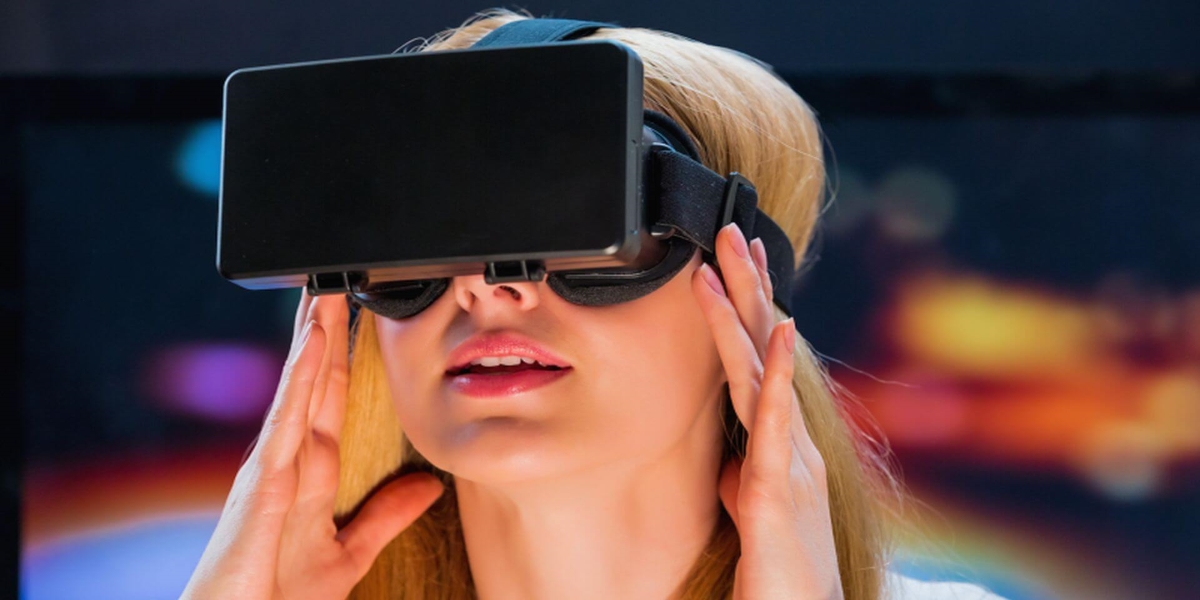Augmented and virtual reality technology has started to mean business in the digital realm. From real life experiences to 3D displays on your smartphone, the technology is locating new purposes and applications and revolutionizing the medium of communication, collaboration, and operations in the entrepreneurial field like never before.
Influence of AR and VR on business sectors
VR in no longer a perceived idea, but an exercise that has started to show some real purpose in various industrial sectors worldwide. For example, the HMD headsets have impacted the working system considerably by smoothing out complex processes along with saving time and budget.
In other words, VR is considered as a potential replacement of the physical premises. The idea is to facilitate a better engagement and help employees in acquiring a concise, specific understanding about the consumer behavior.
This takes us to the major business sectors that have the capacity to incorporate the enterprise reality technology in their operations.
Manufacturing
Manufacturing is the foremost sector that comes to mind when we talk about the AR/VR technology, a niche from where most products and offerings are born and distributed. Therefore, it is important to have a reliable, robust digital solution in place to make the entire production and distribution processes much easier and effective.
Today, we commonly see warehouse floors with sensors installed on machines. The purpose of these sensors is to help the supply chain management, in other words, aid the associated personnel in handling the demand and supply concerns appropriately.
Apparently, the manufacturing sector is being impacted by the AR/VR technology, let it be online collaboration, design reviewing, client presentation, or digital prototyping. Consider the example of Ford Motor Company. According to Cognizant, the company’s use of enterprise reality solutions has resulted in the reduction of worker injury rates by 70%, besides the slump in the ergonomic issues within the system by 90%.
Retail
The AR/VR technology has made it simpler for business owners, especially retailers, to examine a particular pattern and plan strategies accordingly to perfectly cater the customized demands and needs of their consumers.
The technology makes use of the data collected from social media channels and mobile applications. Furthermore, customers’ purchasing patterns are closely observed, hence, making way for virtual tours which are modified on the basis of particular customer segments and expectations from the retailers.
Through headsets, customers can experience the outlook and feel of the product without needing to travel to the store. MD tools free users of the need to be physically present at the stores for trying an outfit. The tools allow users to see if the outfit will look good on them and provide you a clear, virtual tour of the interiors to help you decide if a particular renovation would be fit and pleasing for your house, space, or room.
Healthcare
Another major sector that is starting to get engulfed by the AR/VR reality technology like never before. Virtual reality allows both doctors and patients to experience the operating room in 3D. Besides that, a decentralized mental health treatment is created to simply the testing procedures.
According to Cognizant, the inclusion of the AR/VR technology in the healthcare practices will potentially generate a global revenue of around $2.54 billion by 2020.
When we talk about critical practices such as surgeries, the technology will help surgeons to inspect the virtual organ models and get amply prepared for critical surgeries.
And what’s in store for the future? With big data analytics, artificial intelligence, sensors, and other powerful features, there is a great future in evidence-based medication and healthcare industry on whole.
Entertainment
Besides the corporate-level contribution of the AR/VR technology, it has its fair share of contribution in the entertainment sector as well. As it stands, the gaming industry captures the maximum attention until now. The innovations in the mobile and console gaming industry say it all!
In case of VR headsets, highly immersive content has enticed millions of users worldwide. Such tools provide real-life experiences and makes the user feel a part of the surroundings in the game.
Music is another industry area that has gained prominence through AR/VR-based technology. People can now attend, or experience musical concerts at the comfort of staying in their own home through VR headsets.
Education
Google’s efforts are on their way to incorporate the augmented and virtual reality in the education sector fully and with a real purpose. The technology tempts students to take guided tours not only to corners of the world, but also deep in the interstellar space.
The advancement in astronomy and geology has proportionately encouraged the app development personnel to cater the related fields as well. For example, 3D graphics and 360 degree videos allow us to experience any particular physical location in a realistic manner.
Speaking further, the marketing industry is also capitalizing the enterprise reality solutions as much as possible. Today prominent brands and companies use the interactive technology to promote their products and reach their customers in completely new ways.

